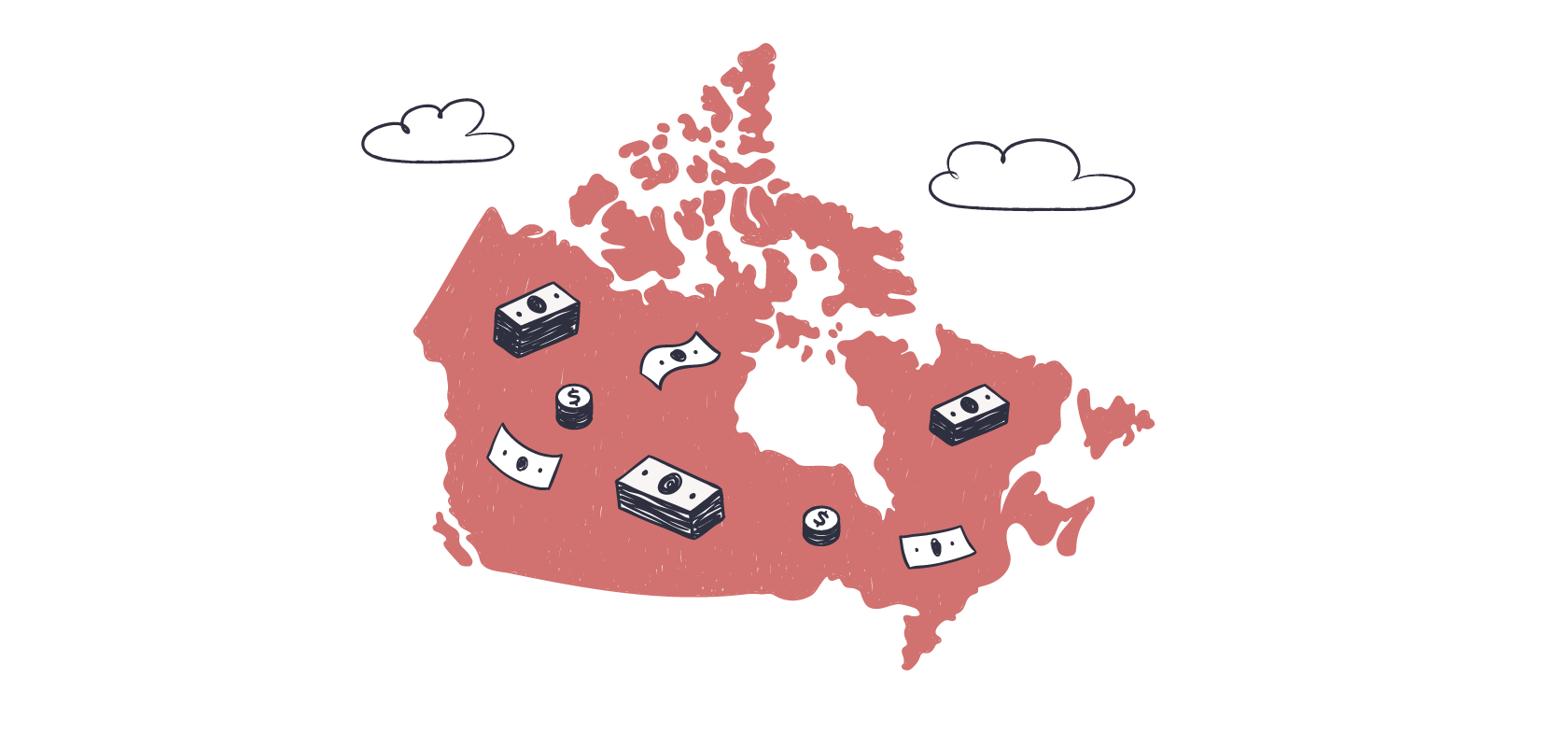Become an insider!
Get our latest payroll and small business articles sent straight to your inbox.
When it comes to statutory holidays pay rules and eligibility in Canada, employers are legally required to observe statutory holidays — commonly known as “stat holidays” — as outlined by federal, provincial, and territorial employment standards legislation. These holidays are distinct from vacation time and other forms of paid time off (PTO).
However, the rules surrounding stat holiday pay can be complex. Factors such as the type of industry, jurisdiction (federal vs. provincial/territorial), and employee eligibility all play a role in determining entitlements. Understanding how these elements interact is key to managing payroll compliance across Canada.
What Are Statutory Holidays?
Statutory holidays (AKA public holidays) are:
- Typically tracked as a non-working, paid day.
- If an employee works that day, they are often compensated with premium pay or a combination or premium pay plus time off. Though there can be exceptions.
What Types Of Legislated Holidays Are There?
While the terms statutory holiday, general holiday, and public holiday are often used interchangeably, there are subtle differences:
- Statutory Holiday is the most common term used by provinces and territories to describe government-mandated paid holidays (e.g. Christmas Day, Canada Day).
- General Holiday is the term used in the Canada Labour Code, which applies to federally regulated industries, and also appears in some provincial legislation.
- Public Holiday is a broader, more informal term. It may refer to statutory holidays, but sometimes includes days like Civic Holiday, which may not be a paid day off in all jurisdictions.
What Is A Civic Holiday?
A Civic Holiday is a unique case. It is not a nationwide statutory holiday, as its status varies significantly by province and even by municipality.
Whether employers are required to provide a paid day off or premium pay for working on the Civic Holiday depends on local employment standards and individual employment contracts.
Understanding these distinctions is critical for employers — especially those managing staff across multiple provinces or under federal jurisdiction.
Public Holidays for 2025
- New Year – Wednesday, January 1, 2025
- Good Friday – Friday, April 18, 2025
- Easter Monday – Monday, April 21, 2025
- Victoria Day – Monday, May 19, 2025
- Saint-Jean-Baptiste Day – Tuesday, June 24, 2025 (Quebec only)
- Canada Day – Tuesday, July 1, 2025
- Civic Holiday – Monday, August 4, 2025
- Labour Day – Monday, September 1, 2025
- National Day for Truth and Reconciliation – Tuesday, September 30, 2025
- Thanksgiving Day – Monday, October 13, 2025
- Remembrance Day – Tuesday, November 11, 2025
- Christmas Day – Thursday, December 25, 2025
- Boxing Day – Friday, December 26, 2025
⭐ Statutory holidays vary by province and territory. Always confirm your obligations through your provincial or territorial Ministry of Labour.
Key Payroll Processing Considerations for Statutory Holidays
Bank closures delay direct deposits
- Most Canadian banks are closed on statutory holidays.
- This means no payments can be processed on those days.
- Payroll teams must adjust pay dates to ensure on-time payments.
Stat holidays often require early submission of:
- Timesheets
- Manager approvals
- Payroll processing
- Funds transfers/money movement
- Plan ahead to meet accelerated deadlines and avoid late payments.
Payroll team scheduling
- Your payroll service provider and/or your software support will likely be off on the holiday as well.
- Provide advance notice to your payroll stakeholders for any changes or impacts. (new hires, wage changes, vacations, etc.)
- Ensure coverage or backup is in place to meet deadlines before the holiday.
Impacts for Salaried Employees
Holiday pay is simple: employers pay the employee their regular daily wage. No complex calculation needed.
Impacts for Hourly Employees or Variable Wages
Holiday pay is based on average daily earnings or a % of recent earnings. The period used to calculate this average depends on your province’s employment standards. (See chart below for breakdown)
Tip: The Government of Canada’s General Holiday Calculator helps estimate entitlements under federal rules. You’ll need employee paystubs and hours worked to use it.
Who Is Eligible for Statutory Holiday Pay?
Eligibility rules vary. Common criteria include:
- Minimum length of employment.
- Minimum number of worked or paid days in the 30 days or 4 weeks before the holiday.
- Being present for scheduled shifts before and after the holiday.
Please check out the chart below for eligibility and exception breakdown.
Statutory Pay Calculation by Province
Please reference the provincial links included for the most up to date information.
These charts do not account for substituting days off/days off in lieu.
All wage averaging formulas are based on 30 days immediately prior to holiday unless otherwise indicated.
Statutory Pay Calculation – British Columbia
| Employment Standards | Pay If Worked | Pay If Not Worked |
|---|---|---|
British Columbia |
|
Average day’s pay |
Statutory Pay Calculation – Alberta
| Employment Standards | Pay If Worked | Pay If Not Worked |
|---|---|---|
Alberta |
|
Average day’s pay |
Statutory Pay Calculation – Saskatchewan
| Employment Standards | Pay If Worked | Pay If Not Worked |
|---|---|---|
Saskatchewan Exceptions |
|
Public holiday pay calculator |
Statutory Pay Calculation – Manitoba
| Employment Standards | Pay If Worked | Pay If Not Worked |
|---|---|---|
| Manitoba Exceptions |
|
Regular day’s pay or 5% of gross wages (4 weeks) |
Statutory Pay Calculation – Ontario
| Employment Standards | Pay If Worked | Pay If Not Worked |
|---|---|---|
| Ontario Special industry rules |
|
Public holiday pay = (wages + vacation pay over 4 weeks) ÷ 20 |
Statutory Pay Calculation – Quebec
| Employment Standards | Pay If Worked | Pay If Not Worked |
|---|---|---|
| Québec |
|
1/20 wages (less OT, 4 weeks); 1/60 for commissions (12 weeks). Calculator |
Statutory Pay Calculation – New Brunswick
| Employment Standards | Pay If Worked | Pay If Not Worked |
|---|---|---|
New Brunswick Exceptions |
|
Regular day’s pay |
Statutory Pay Calculation – Nova Scotia
| Employment Standards | Pay If Worked | Pay If Not Worked |
|---|---|---|
Nova Scotia Exceptions |
|
Regular or average day’s pay (avg over 30 days if variable) |
Statutory Pay Calculation – Prince Edward Island
| Employment Standards | Pay If Worked | Pay If Not Worked |
|---|---|---|
Prince Edward Island |
|
Regular day’s pay |
Statutory Pay Calculation – Newfoundland & Labrador
| Employment Standards | Pay If Worked | Pay If Not Worked |
|---|---|---|
Newfoundland & Labrador |
|
One day off in lieu (granted within 2 months). If not granted, one day’s pay is required. *Note that days in lieu is the default legislation for this province. |
Statutory Pay Calculation – Northwest Territories
| Employment Standards | Pay If Worked | Pay If Not Worked |
|---|---|---|
Northwest Territories |
|
Average day’s pay |
Statutory Pay Calculation – Yukon
| Employment Standards | Pay If Worked | Pay If Not Worked |
|---|---|---|
Yukon |
|
Regular work: avg day’s pay. Irregular work: 10% of wages (less vacation pay) earned in the prior 2 weeks. |
Statutory Pay Calculation – Nunavut
| Employment Standards | Pay If Worked | Pay If Not Worked |
|---|---|---|
Nunavut |
|
Regular day’s pay |
What Happens When Shiftwork Overlaps A Statutory Holiday?
Question: Do non-union employees qualify for stat holiday pay if their overnight shift begins the day before a statutory holiday and continues into the holiday?
Answer: For AB, BC, ON YU, the answer is no.
If the shift starts on a non-statutory holiday and carries over into the stat holiday, the employee does not qualify for stat pay for any of the hours worked for that shift. The key factor is the start time of the shift.
Alternatively, for the same provinces, if the employee starts work on the stat holiday and works into the following non-stat day, they would receive stat pay for the entire shift.
For all other provinces and territories, all hours worked on the statutory holiday need to be paid as such.
For more information please read: NPI – Statutory Holidays Payroll Best Practice Guide (page 29 under shift work).
Staying Compliant with Statutory Holidays Pay Rules in Canada
Navigating statutory holiday pay rules in Canada requires a clear understanding of federal and provincial employment standards, especially for employers with staff in multiple jurisdictions, varying industries or with irregular schedules.
From eligibility criteria to pay calculation methods, the nuances can significantly impact payroll accuracy and employee satisfaction. Staying up to date with the latest legislation ensures compliance.
When in doubt, consult official employment standards resources or a payroll professional to ensure your practices align with current regulations.
For more insights on staying compliant and avoiding any payroll errors, be sure to check out this checklist on top payroll mistakes to avoid.
Disclaimer
This article is intended for informational purposes only and does not constitute legal, employment or HR advice. Always consult with a qualified professional or your local government to ensure full compliance.











